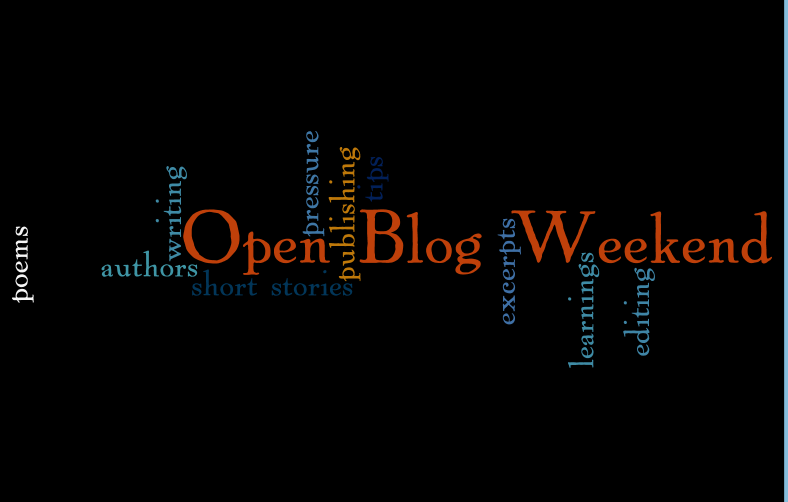Open Blog Weekend: Anesthetic by Faith Cotter
There were four things I was absolutely sure that I loved as a teenager: reading, writing, horseback riding, and medicine. I wanted to be a labor and delivery nurse. I wanted to be a nurse in the neonatal intensive care unit. I wanted to be a neonatologist. I wanted to be a perinatologist. I wanted to be all these things* and live in a barn, chucking hay around on Saturdays and falling asleep in the stalls of my favorite horses every night.
One of these interests resulted in a cyst on my lower back during a particularly hot summer (I’ll let you guess which). And, because I was 16, I was like, eh. It’ll go away. Except I was wrong! Surprise! Maybe I should have wanted to study tailbone cysts instead?
By the time I figured out that the cyst wouldn’t magically disappear, from what I remember the thing was so infected that, upon attempting to fix it (I’ll spare you the details), the local anesthetic didn’t work as well as it should have.
To deal with that, I rattled off details that I picked up from all of the medical books I lost myself in instead of doing my math homework. (Side note: Math is important. Do your math homework, kiddos.) It probably went something like this:
“I have a theory. Want to hear my theory? Okay, here’s my theory. OW. Anyway-OW-there is this thing called cyclocephaly. And instead of a person’s brain splitting into two hemispheres like it is supposed to, sometimes it doesn’t and the brain isn’t split and the person only gets one eye. Maybe someone saw a person with that condition a very, very long time ago and turned it into a story, because they didn’t understand. Maybe that’s where the story of the cyclops came from.** OW OW OW ARE WE DONE YET?”
The doctor on the receiving end of all of this was an awesome man named Dr. Barksdale. After the procedure, we talked about medicine. He told me that when I graduated high school to stop by his office, because he wanted to talk more about my career goals and how medicine fit into all of that. (He also said something really incredible that I wish I could quote; however, I don’t know if he actually said it or not because pain killers.)
Two years go by. I graduate and call Dr. Barksdale up—who, by the way, had known of my family for a while at that point, as three of the four of us kids were patients of his at one time or another.
At the meeting, he shows me a picture from his youth—a black and white photograph of a group of children— and says something along the lines of not everyone in the photograph being able to get out. I am confused at this point, but still listening. He tells me, and I am paraphrasing because time has blurred his exact words, that I could make it out, or I could not make it out. That I had a choice. What was I going to do with it?
He went on to discuss the difference between understanding medical concepts and practicing medicine. And, though it’s been nearly ten years, I will never forget when he looked at me and said, “I have a medical journalist from The Wall Street Journal waiting outside to speak with me after our meeting.”
I won’t forget it because that’s when the light bulb went off. That’s when I knew that I wanted to work in the medical publishing field. It made perfect sense, and I’ve been working toward it ever since—all because someone listened to me.
If Dr. Barksdale hadn’t listened to me the day that the anesthetic didn’t quite work, I never would have shaped the value of words and storytelling into a career. I never would have studied journalism. I never would have started editing. I never would have wrote and published my own stories. I never would have gone to grad school for technical writing. I never would have given even one thought to applying to the medical writing and editing certificate program at the University of Chicago.
I never would have taken every opportunity I could to write about nuanced topics to show that I can do this, that I can act as a messenger between doctor and patient, that I can edit the articles medical professionals write, that I can compose hospital grants and work my tail off for the sake of getting information from Point A to Point B. Information is important. Information is empowering.
Looking back, I think Dr. Barksdale knew more about what was going on in my head and in my life than I did. As for the medical journalist he said he was going to meet? Well, for all I know that interview could have been conducted over the phone—or maybe age has erased the image.
But I don’t recall anyone being out in that hallway when I left.
*In case it wasn’t obvious, one of my favorite TV shows is the criminally underrated Call the Midwife.
**I in no way mean to undermine the humanity of persons born with this condition. I understand the importance of not blurring real people with fiction. I felt that people create stories from what they don’t know in an attempt to understand, and that was the tenuous connection my teenaged self was attempting to articulate. Also, I could be totally wrong about not only how the condition comes about, but the origin of the cyclops as well. I simply remember, at the time, thinking about this sort of thing a lot, and I didn’t want to be dishonest about that when writing the dialogue.













Leave a Reply